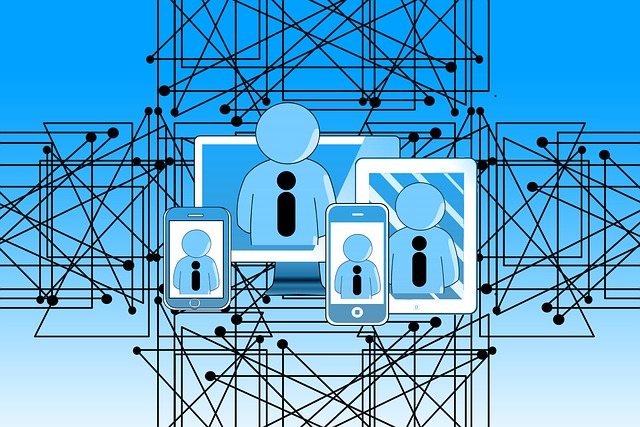HackerOne, a leading bug bounty and cybersecurity platform, is urging the U.S. government to advocate for explicit protections for ethical hackers and security researchers in the upcoming UN Cybercrime Treaty. The company warns that, without such protections, legitimate security research—a cornerstone of modern cybersecurity—could be criminalized globally, making it harder for security professionals to perform the critical work necessary to keep the internet safe.
The UN Cybercrime Treaty, which is currently being negotiated as part of international efforts to combat cybercrime, has raised significant concerns among the cybersecurity community. If approved without clear exemptions for ethical hackers and researchers, it could inadvertently lead to the prosecution of individuals who identify and report vulnerabilities, often at the request of organizations looking to improve their own security.
The Importance of Ethical Hackers in Cybersecurity:
Ethical hackers, also known as white-hat hackers, play an essential role in protecting digital systems by finding vulnerabilities before malicious hackers can exploit them. They conduct penetration testing, security audits, and vulnerability assessments to uncover flaws in software, networks, and digital infrastructure.
These researchers work with organizations to patch vulnerabilities and improve cybersecurity practices. The findings they disclose often prevent widespread data breaches, financial losses, and cyberattacks that could have devastating impacts on businesses, governments, and individuals.
However, their activities sometimes involve testing the limits of systems and software, which can be seen as illegal under existing laws. In certain jurisdictions, actions such as scanning networks, exploiting vulnerabilities, or even accessing information without authorization—even with good intentions—can lead to criminal charges.
Potential Impact of the Cybercrime Treaty:
The UN Cybercrime Treaty, if enacted without adequate safeguards, could criminalize security research and legitimate vulnerability disclosure. The treaty aims to establish a unified framework for prosecuting cybercrime, but cybersecurity experts and organizations like HackerOne fear that its current draft may unintentionally make ethical hacking illegal in some countries.
Several key concerns have been raised about the treaty:
- Overly Broad Definitions of Cybercrime: Some provisions could classify security testing or vulnerability disclosure as illegal activities, potentially punishing ethical hackers for actions that are crucial to improving cybersecurity.
- Global Jurisdictional Issues: The treaty would apply internationally, which means that ethical hackers in countries with more lenient laws could be prosecuted under more restrictive jurisdictions, creating a global chilling effect on security research.
- Lack of Clarity: Critics argue that the treaty’s lack of specific protections for security researchers and ethical hackers leaves them vulnerable to legal consequences for activities that are essential to identifying cyber threats.
HackerOne’s Advocacy for Protections:
HackerOne, which operates as a bug bounty platform, connects organizations with ethical hackers who help them identify and fix vulnerabilities. The company has long advocated for a global environment where security researchers can operate without fear of prosecution. They believe that the UN Cybercrime Treaty should recognize and protect the rights of security professionals who conduct ethical hacking.
In a recent statement, HackerOne’s CEO, Marten Mickos, urged the U.S. government to use its influence in the negotiations to ensure explicit protections for researchers and hackers who act in good faith. These protections would provide clear legal exemptions for activities such as penetration testing and vulnerability reporting, which are essential to the broader cybersecurity ecosystem.
Mickos emphasized that without these safeguards, governments and organizations could face heightened security risks. “Criminalizing ethical hacking and research will make it harder to secure our digital infrastructure,” he said, noting that “cybercriminals will always find ways to exploit vulnerabilities, and it is the ethical hackers who can stop them.”
International Support for Ethical Hacking Protections:
HackerOne’s plea comes at a critical moment, as cybersecurity professionals and digital rights advocates around the world are also calling for stronger protections for ethical hackers. In recent years, countries like the United States, United Kingdom, and Australia have made strides in clarifying the legal status of ethical hacking, recognizing it as an essential part of maintaining digital security.
The Global Forum on Cyber Expertise and other cybersecurity coalitions have voiced similar concerns about the UN Cybercrime Treaty, urging negotiators to ensure that researchers and security professionals are not caught in the crossfire of efforts to combat cybercrime.
What Needs to Be Done:
For the UN Cybercrime Treaty to succeed in protecting global digital infrastructure, it is crucial that it acknowledges the role of ethical hackers and provides clear protections for those conducting good faith security research. Some of the key reforms that cybersecurity experts and organizations like HackerOne are advocating for include:
- Exemptions for Ethical Hacking: The treaty should explicitly exempt security researchers from prosecution when conducting activities that are critical to identifying vulnerabilities and improving digital security.
- Clear Definitions: The treaty must clarify the definitions of “unauthorized access” and “hacking” to ensure that legitimate security research is not classified as cybercrime.
- International Cooperation: Countries must collaborate to create consistent global standards for vulnerability reporting, making it easier for ethical hackers to disclose issues to the organizations involved without facing legal risks.
- Protection from Retaliation: Researchers should be protected from legal retaliation by governments or corporations when they report security issues, as their work ultimately contributes to the greater good of cybersecurity.
Conclusion:
The growing threat of cybercrime and digital vulnerabilities makes it more important than ever to empower and protect the individuals who work tirelessly to secure our online systems. Ethical hackers play an indispensable role in identifying threats, but their work depends on clear legal protections that allow them to operate without fear of criminalization.
HackerOne’s call for the U.S. government to advocate for protections for ethical hackers in the UN Cybercrime Treaty is a crucial step toward ensuring that the global fight against cybercrime does not unintentionally undermine the very efforts that keep the internet secure. As negotiations continue, it will be vital for governments, organizations, and cybersecurity experts to come together to support a balanced approach that fosters innovation and trust while still tackling the threats posed by cybercriminals.
References:
- HackerOne Blog – “Why Ethical Hacking Must Be Protected in the UN Cybercrime Treaty”
- The Washington Post – “Global Cybercrime Treaty May Criminalize Ethical Hacking, Experts Warn”
- Cybersecurity & Infrastructure Security Agency (CISA) – “The Role of Ethical Hackers in National Security”
- UNODC – “UN Cybercrime Treaty Negotiations: What’s at Stake for Digital Security?”
- TechCrunch – “HackerOne Urges U.S. Government to Protect Cybersecurity Researchers in Global Treaty Talks”


